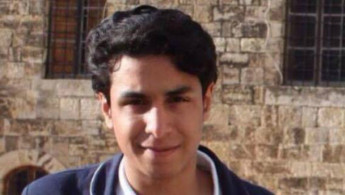Thousands demand release of Saudi death row Shias
About 1,000 members of Saudi Arabia's Shia minority gathered at a mosque on Friday to demand the release of activists on death row.
A resident said the prayers and sermons at Imam Hussein Mosque in the Eastern Province town of Awamiya drew Shias from nearby Qatif and the al-Ahsa region.
"They gathered to demand their freedom," said the resident who asked for anonymity.
Their call came as the family of one Shia activist, sentenced to death after protesting, voiced concern over his fate and a rights group warned of his imminent execution.
The sentence against Ali al-Nimr, only 17 when he was arrested in February 2012, has drawn international condemnation over his young age and allegations he was tortured.
Ali al-Nimr's uncle told AFP on Friday his family fears "the government is serious, very serious" about carrying out the sentence.
Jaffar al-Nimr said his nephew reported that he had undergone a medical check when his family last spoke to him two weeks ago.
'50 deaths in a single day'
Amnesty International warned on Thursday that Ali al-Nimr was among more than 50 people, including other Shia activists, at increased risk of soon being put to death in a single day.
His mother and the mothers of other detainees implored King Salman for clemency after learning of preparations possibly associated with impending executions, the London-based rights group said.
"Saudi Arabia's macabre spike in executions this year, coupled with the secretive and arbitrary nature of court decisions and executions in the kingdom, leave us no option but to take these latest warning signs very seriously," said James Lynch, Deputy Director of the Middle East and North Africa Programme at Amnesty International.
"These executions must not go ahead and Saudi Arabia must lift the veil of secrecy around its death penalty cases, as part of a fundamental overhaul of its criminal justice system."
Ali al-Nimr's case has provoked a call for clemency from France, while the United States expressed "deep concern".
Activists say Ali al-Nimr is one of three Shia protesters who were minors at the time of their arrest and have been sentenced to death.
| Saudi Arabia’s macabre spike in executions this year... leave us no option but to take these latest warning signs very seriously - Amnesty International |
They have exhausted all appeals.
"International law prohibits the use of the death penalty against anyone under the age of 18," Amnesty said.
It added that there were "credible allegations" the three youths had been tortured.
'Peaceful people'
Their fate rests with King Salman, who, activists say, must give final approval before death sentences are carried out.
The case of Jaffar al-Nimr's brother, Shia cleric Nimr al-Nimr, also rests with Salman after the Supreme Court last month upheld his death sentence for sedition.
"They are peaceful people," Jaffar al-Nimr said. "They are not criminals."
The cleric - based at Imam Hussein Mosque in Awamiya - was a driving force behind the small protests that erupted in 2011 in eastern Saudi Arabia, where most of the country's Shias live.
The protests, hundreds-strong, developed into a call for equality in the Sunni-ruled kingdom, where many Shias have long complained of marginalisation.
Amnesty said Nimr al-Nimr was among six Shia activists at imminent risk of execution and who were "clearly convicted in unfair trials".
The rights group earlier this month reported that a surge in executions in Saudi Arabia had pushed to 151 the number put to death this year.
In recent weeks, however, there has been a marked drop in executions, all of which are reported by the official Saudi Press Agency.
Saudi Foreign Minister Adel al-Jubeir on Thursday was asked about the case of Saudi blogger Raif Badawi, sentenced to flogging and ten years in jail for insulting Islam.
"We expect other countries to respect our legal system," he said.
Awamiya, near Dammam on the Gulf coast, has been the scene of repeated security incidents since the protests began.
In October, gunfire was heard after police sealed off the town, where officers said they recovered a large amount of ammunition when they raided a farm area.
In April, the interior ministry said a policeman died in a gunfight with "terrorists" in Awamiya.
But the Shias who filled the Imam Hussein Mosque on Friday rejected violence.
"They refused any clashes between the community and the government," the resident said.





 Follow the Middle East's top stories in English at The New Arab on Google News
Follow the Middle East's top stories in English at The New Arab on Google News
![Netanyahu furiously denounced the ICC [Getty]](/sites/default/files/styles/image_330x185/public/2024-11/GettyImages-2169352575.jpg?h=199d8c1f&itok=-vRiruf5)
![Both Hamas and the Palestinian Authority welcomed the ICC arrest warrants [Getty]](/sites/default/files/styles/image_330x185/public/2024-11/GettyImages-2178351173.jpg?h=199d8c1f&itok=TV858iVg)
